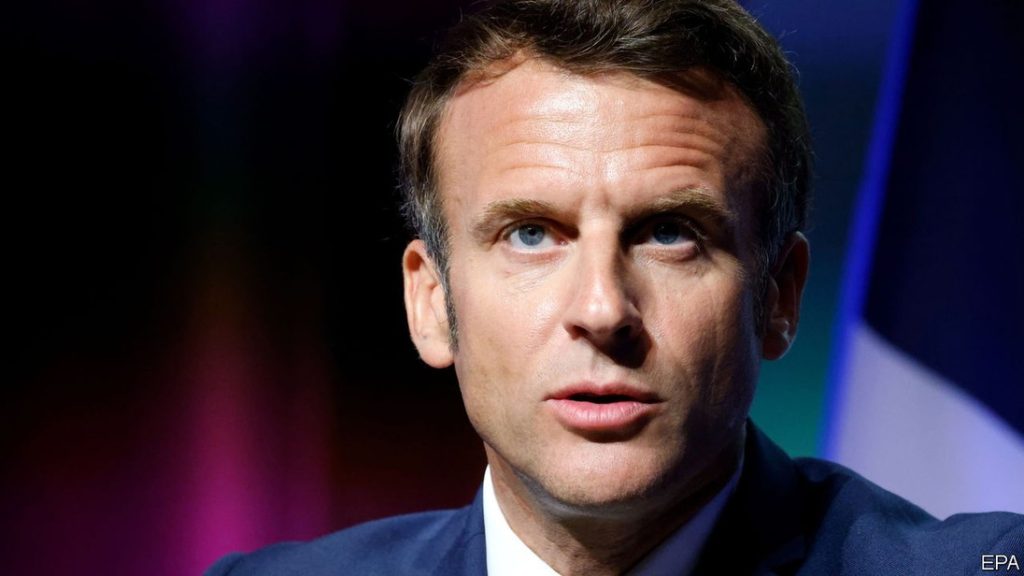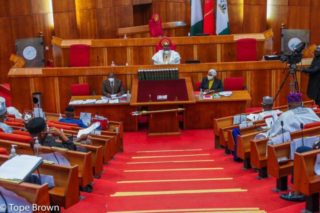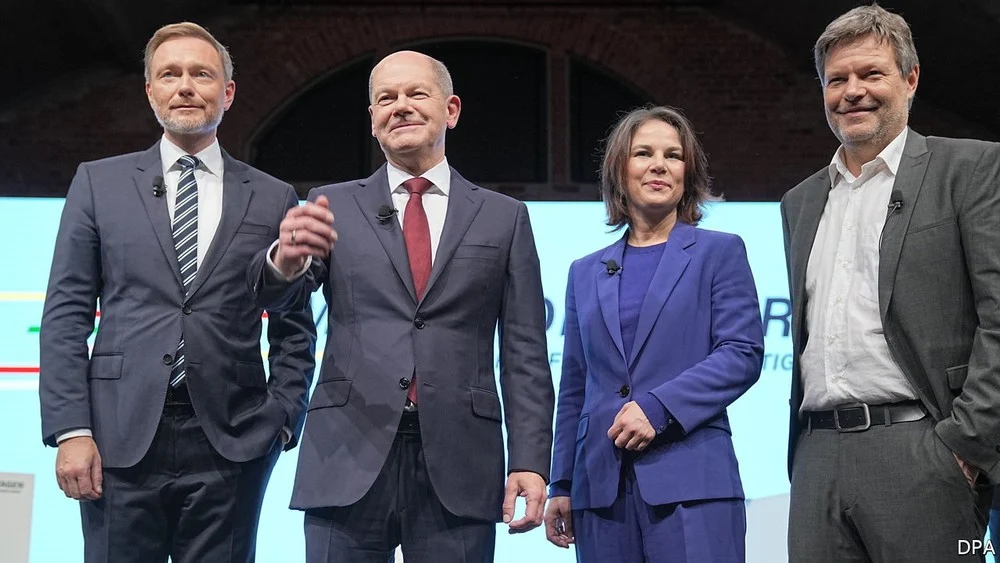
PARIS — EMMANUEL MACRON, France’s recently re-elected president, has lost his parliamentary majority. Early projections in the run-off legislative elections on June 19th by Ipsos, a polling group, suggested that his centrist alliance, Ensemble, had won a mere 230 seats, well short of the 289 it needed. This tally represents a collapse in support from the 350 seats Mr Macron and his allies won in 2017. The president now faces an extremely difficult and uncertain second term.
Elisabeth Borne, the prime minister, looked well placed to win a seat in Normandy. But a number of Mr Macron’s other close allies lost their seats, including Richard Ferrand, the parliamentary speaker, and Christophe Castaner, his former interior minister. A number of Mr Macron’s ministers are now expected to resign, having been rebuked by voters.
Even in its shrunken state, Ensemble will remain the biggest party in parliament. But its poor showing means that Mr Macron’s grouping is only a bit bigger than Jean-Luc Mélenchon’s radical-left alliance, the New Popular Ecological and Social Union (nupes). The 70-year-old former Trotskyist stitched the grouping together for these elections, absorbing the Socialists, Communists and Greens. Securing backing from voters who sought both to punish Mr Macron and to curb his powers, nupes looked set to win 149 seats.
Mr Mélenchon had campaigned with the slogan: “Mélenchon, prime minister”. Even before the vote, Mr Macron had ruled this out. But nupes will not only replace the centre-right Republicans as the main parliamentary opposition; it will now represent a serious parliamentary force that will seek to block any legislation it dislikes. Mr Mélenchon’s result is a coup for the French left, which has for years been plagued by internal squabbling. For once the different left-wing parties put aside their many policy differences, over matters such as Europe or nuclear power, in order to forge a counter-force to Mr Macron.
The biggest surprise of the evening was the result achieved by Marine Le Pen’s National Rally. The nationalist-populist party pulled off its best legislative result ever, looking well placed to win a massive 85 seats, a ten-fold increase on the eight it won in 2017, and more even than the Republicans. nupes is a coalition; National Rally looks likely to be a bigger parliamentary force than any of its constituent parties. This confirms the transformation of French party politics into three blocks: the centre, which Mr Macron dominates; the radical left and the nationalist right.
The result is a serious and astonishing blow for the French president. Before heading off last week on a tour of eastern Europe, including Ukraine, Mr Macron had called on voters to give him a “solid majority” in order to bring stability at an uncertain time. It was not to be. Voters seemed set on constraining the president’s ability to do what he wants, and on forcing him to govern differently and take into account other political views.
Mr Macron now faces tricky choices for his second term, among them whether to replace his (brand new) prime minister. One option for the president will be to try to rule with a minority government, as Michel Rocard, a former prime minister, did under François Mitterrand in 1988-1991. Rocard, though, made use 28 times of a constitutional provision known as 49-3, which enabled him on numerous occasions in effect to bypass parliament. The rules governing that provision have become much stricter: apart from legislation concerning the budget, it can be used only once during each sitting of parliament. Mr Macron would need instead to lean heavily on ad hoc support for legislation from other deputies, if he can find it.
An alternative would be for the president to try to form a coalition, with all the political compromises that implies. Together with the Republicans and their right-of-centre associates, who are estimated to have won around 78 seats, he would theoretically have a majority. Yet ahead of the second round, they refused to call on their supporters to back Mr Macron’s candidates against those of Mr Mélenchon’s nupes. Many of the party’s moderates defected to Mr Macron’s camp long ago. Discussions over personnel and policy would be difficult.
Neither option would make for stable government or sound policymaking. Mr Macron may well have to bin or rework some of his signature pledges, among them a plan to raise the retirement age from 62 to 64 or 65. The enthusiasm with which voters have backed Mr Mélenchon, who had promised to lower the pension age to 60, gives a hint of public sentiment about Mr Macron’s plan. Thanks to the gilets jaunes uprising, covid-19, Russia’s invasion of Ukraine and the associated resurgence in inflation, the 44-year-old president had a turbulent first term. His second looks likely to be more tumultuous still.
By The Economist




